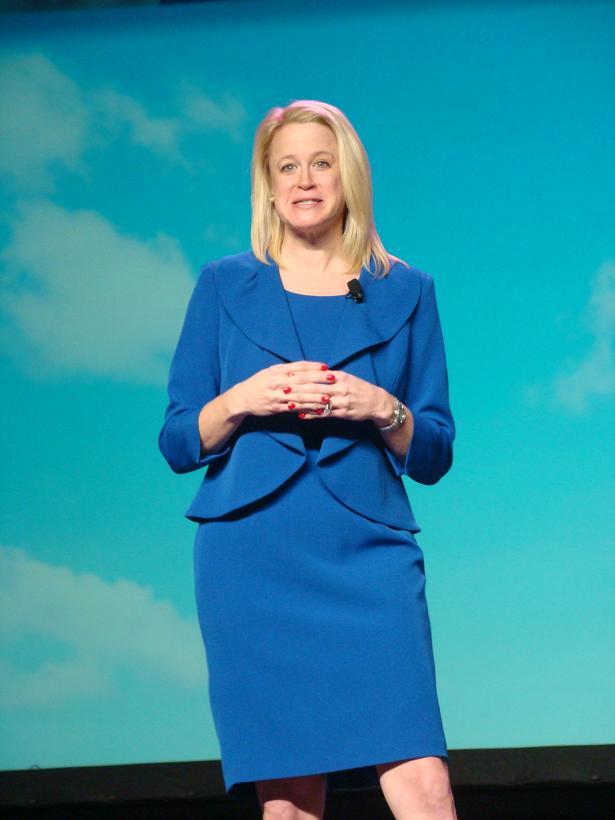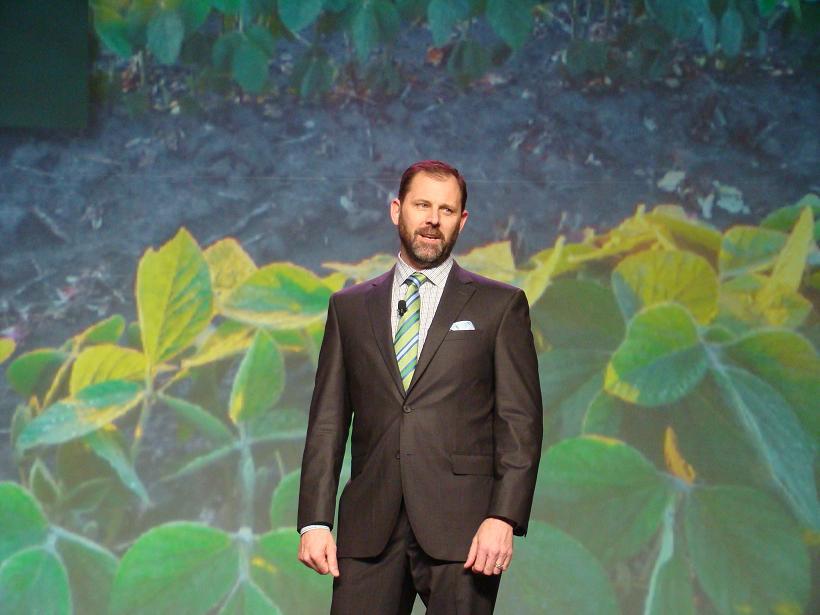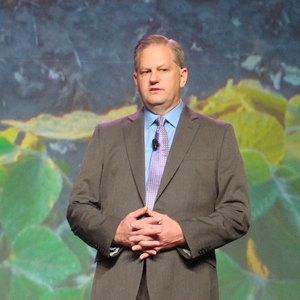Underdog industry rallies for continued growth at annual event




Photo: Ron Kotrba, Biodiesel Magazine
January 18, 2017
BY Ron Kotrba
Biodiesel has spent most of its existence fighting as the underdog and often winning against the odds. This year will be no different, as the story was told by industry leaders at the 2017 National Biodiesel Conference in San Diego.
Last year was phenomenal for the U.S. biodiesel sector thanks to a two-year tax credit and hard-fought victories increasing biodiesel’s presence in the renewable fuel standard (RFS). “We should all be proud of these efforts,” said Anne Steckel, vice president of federal affairs at the National Biodiesel Board. “But we can’t let up.”
Now, with the fifth lapse of the $1-per-gallon biodiesel tax credit and a new, unpredictable president taking office with his oil-friendly appointments, the bell has rung again for the underdog to get back into the fight.
Advertisement
Advertisement
“The new president comes with what many perceive as greater uncertainty than most,” Steckel said. “Four times before the tax credit has lapsed and we’ve succeeded in getting it reinstated.”
Biodiesel the underdog continues to fight what Steckel said is “the oil industry’s massive lobbying apparatus.” Every drop of biofuels required by RFS to diversify the U.S. transportation fuel supply means the oil industry loses money through lost market share and its responsibilities as an obligated party in the program. “Money is what this fight is all about,” she said.
Biodiesel continues to have bipartisan support in Congress, Steckel said, but ensuring biodiesel’s key messages are heard and understood by legislators is a primary goal for NBB and this industry. Those key messages are job creation, numerous environmental and economic benefits, and a need to reinstate a reformed tax credit for domestic production vs. a blend incentive to retain those benefits in the U.S. and further enhance them.
Advertisement
Advertisement
To help accomplish this, newly appointed NBB CEO Donnell Rehagen told the audience that NBB is expanding its staff in Washington, D.C., by adding a director of advocacy to amplify its members’ voices and increase visibility through efforts such as letters to the editors of local newspapers and arranging plant visits for legislators. Rehagen said NBB is also adding a fulltime lobbyist to help educate the incoming administration and legislators on the importance of supporting and growing biodiesel production and use.
Rehagen reminded listeners that biodiesel and renewable diesel combined support more than 47,000 U.S. jobs and provides $1.9 billion in wages with a total U.S. economic impact of $8.4 billion. If the domestic industry produced 2.5 billion gallons of combined biodiesel and renewable diesel, this would support nearly 82,000 jobs and have almost a $15 billion economic impact. “We’ve got to keep fighting, it’s part of our DNA,” Rehagen said. “We’ve come far, but we are still underdogs.”
Kent Engelbrecht, chairman of the NBB and biodiesel trade manager Archer Daniels Midland Co.’s global oilseeds business unit, said, “We grow strong, and we stay strong, together. That upstart underdog”—biodiesel—“is the lifeline for many rural communities.”
Check back with BiodieselMagazine.com for much more coverage of the 2017 National Biodiesel Conference & Expo from San Diego.
Related Stories
The U.S. EPA on July 8 hosted virtual public hearing to gather input on the agency’s recently released proposed rule to set 2026 and 2027 RFS RVOs. Members of the biofuel industry were among those to offer testimony during the event.
The USDA’s Risk Management Agency is implementing multiple changes to the Camelina pilot insurance program for the 2026 and succeeding crop years. The changes will expand coverage options and provide greater flexibility for producers.
President Trump on July 4 signed the “One Big Beautiful Bill Act.” The legislation extends and updates the 45Z credit and revives a tax credit benefiting small biodiesel producers but repeals several other bioenergy-related tax incentives.
CARB on June 27 announced amendments to the state’s LCFS regulations will take effect beginning on July 1. The amended regulations were approved by the agency in November 2024, but implementation was delayed due to regulatory clarity issues.
SAF Magazine and the Commercial Aviation Alternative Fuels Initiative announced the preliminary agenda for the North American SAF Conference and Expo, being held Sept. 22-24 at the Minneapolis Convention Center in Minneapolis, Minnesota.
Upcoming Events










